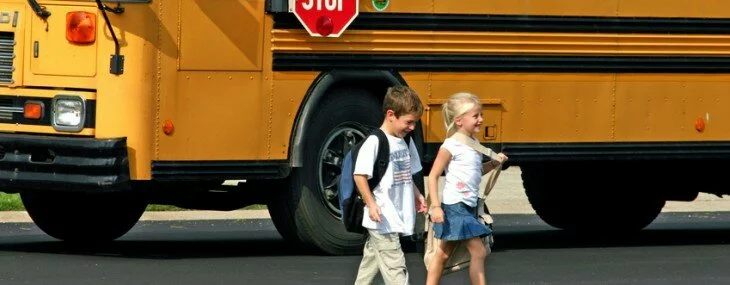Across the country, the familiar echo of school bells ringing marks the start of another year. Children are excited to return to the classroom and to see their friends, and most parents are delighted to exchange the spontaneous days of summer for a more stable schedule. The shopping is over, pencils and paper are tucked into backpacks, and the exhilaration of “the first day” is here. Students wonder, What should I wear? Will others be nice to me? Will I fit in? School can mean stress!
Our Social Responsibility
Children who are in an environment where manners are taught and valued feel safer, experience higher morale, are healthier, and learn better. Those, however, in an environment where there is a lack of manners experience a higher level of anxiety, illness, absenteeism, depression, and poor grades. Surveys indicate that most Americans believe in the value of good manners and that our society is no longer as civil as it once was. Most people, though, don’t believe that they themselves are rude. Each of us has a social responsibility to do our part to create a more polite society.
Children learn what they live. A parent who yells at a coach on the field, and then continues to rip him apart during dinner, teaches his or her child far more than that the coach may have simply made a wrong call. Studies show that rudeness often progresses to bullying and then to abuse. To many, it seems that society no longer has limits. Rude behavior has become rampant today, and it is lethal to our emotional, physical, and financial health. It is highly destructive on every level.
Busyness Often Breeds Rudeness
The busyness of daily life can often breed rudeness. Many people claim to be too busy to say “please” and “thank you.” They’re too pressed for time to hold the door open for a person behind them…to let their host know if they can or cannot attend a function…to enjoy a uninterrupted meal with a loved one…or take a moment to write a thank-you note. Lives that are overextended and over committed do not have the ability to live and move with ease and grace towards others. Almost everyone is pressed by traffic, ringing phones, emails, transporting children from one event to the next, meeting deadlines, and the guilt of not spending enough time with family and friends. The very act of one person being kind to another eases the stress of the moment and improves the quality of both lives.
Today’s youth deal with pressures that we adults never faced. Many children live in single-parent or blended households and are entertained hour after hour and day after day by Hollywood—through television, movies, and music. In addition, they often spend untold hours in front of a computer screen—doing homework, chatting with friends, and surfing the Web. Thirty-four percent of children from age ten to seventeen are exposed to unwanted sexual material online, and cyber-bullying is said to be up fifty percent. There is often so much focus placed on children understanding how important they are that we have forgotten to teach them how important others are as well.
Our children need to be equipped to leave our homes and schools as responsible young adults, both socially and professionally. Employers often refer to young workers as the “501ers.” They do just what they have to do on the job and leave promptly at 5:01. Many employers hire etiquette coaches to do remedial training for their staff in the areas of social skills, proper dress, and basic grooming. Businesses realize the cost is far too high of not having a civil workplace.
A Civil and Safe Environment
Every person involved, even briefly, with a child influences him or her and helps to shape their character. Civility is both taught and caught from birth. Children must see polite, civil, kind behavior demonstrated for them to learn to be polite, civil, and kind. We must constantly review our own behavior and ask if it is “mentor” quality—or do we need a “manners make-over”? Let’s create an environment in our homes, schools, and churches where manners are taught and valued so that every child feels safe and becomes all she or he was created to be. We all will be better for it.
©2013 What Would Mrs King Do? If you would like to use this article in your newsletter or blog, you may do so. Please include our credit information: Written by Deborah King, What Would Mrs King Do? © Copyright 2013. I would also appreciate it if you would send us a copy for our files to [email protected].



Speak Your Mind